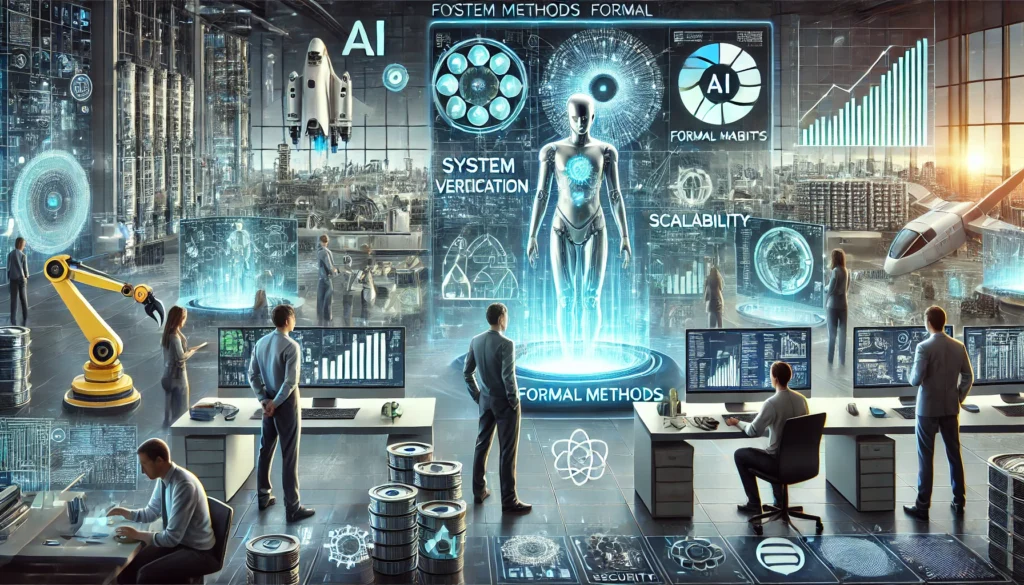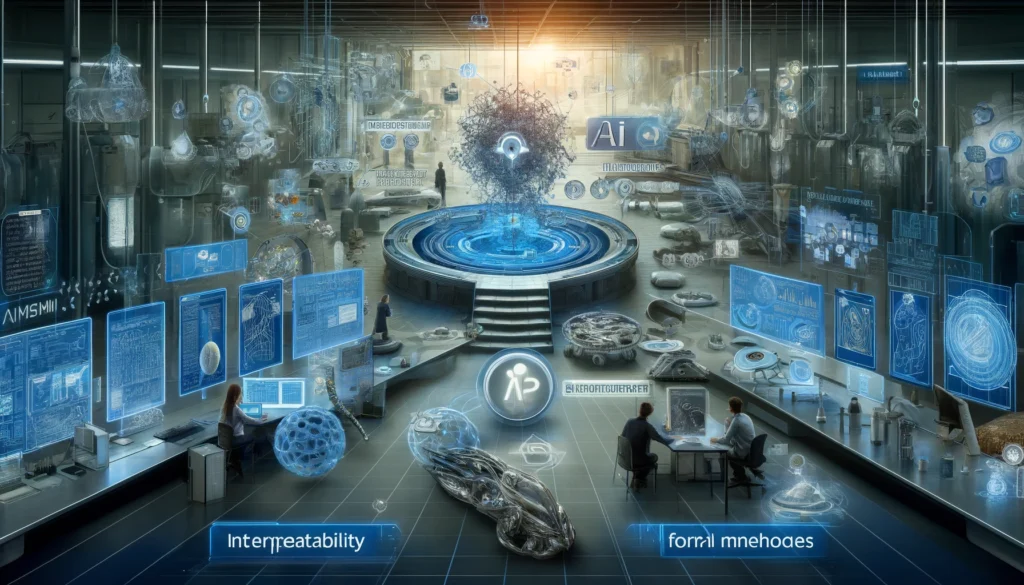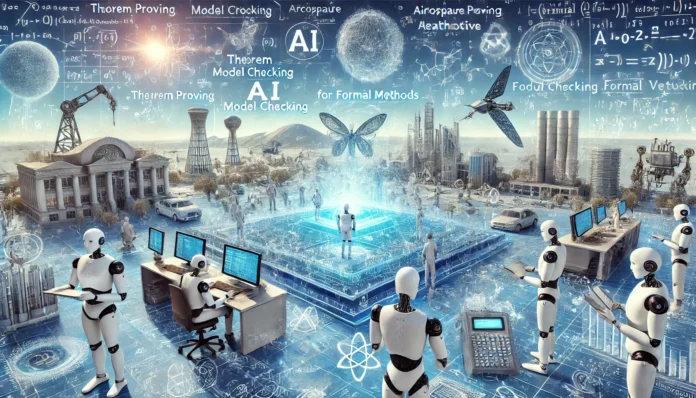Software production is one of the vital parts of the electronic world. Among these aspects, correctness and reliability are the most important, particularly in some mission-critical domains, such as aerospace, healthcare, and finance. AI Tools for Formal Methods, a mathematically rigorous approach to software verification enhanced by artificial intelligence, have long been used to guarantee that systems function as intended. On the other hand, traditional methods are usually either too complex or take too much time to employ. With the advent of Artificial Intelligence, a new world of formal methods emerges and is reshaped by cutting-edge AI technologies.
What Are Formal Methods?
Formal methods, in general, make use of the mathematical techniques and tools for specifying, developing, and verifying software and hardware systems. Moreover, by depicting the systems as mathematical entities, engineers can use formal proofs to demonstrate that they have the desired properties, e.g safety, security, and so on. For this purpose, such tools as theorem provers, model checkers, and static analyzers are usually used in the practice.
Role of AI in Formal Methods
AI Tools for Formal Methods have gained popularity due to their ability to simplify complex processes, minimize human errors, and accelerate verification tasks. The recent trend of these AI-powered tools becoming an integral part of formal methods can be seen as a breakthrough in various areas such as:
Theorem Proving
The AI-powered tools can assist in proving mathematical theorems that are used in formal verification. After examining large proof datasets, AI tools can hypothesize the logical next steps, thus facilitating reasoning and speed.
Model Checking
AI algorithms, which allow for optimizing the search space in the model checking process, to avoid any kind of potential error that may lie hidden within each possible system state. This type of problem-solving is especially useful in situations of massive and complex systems where old ways may run into such limits.
Natural Language Processing (NLP)
Translating human-written forms into machine-readable codes has always been a daunting task. NLP tools using AI can be the vehicle for this transformation, which will naturally convert these informal requirements into formal specifications with almost no manual intervention.
Error Prediction and Debugging
By analyzing the past system designs and their verification results, AI can predict the potential design errors of new systems and offer solutions quickly, thus, reducing the debugging phase.
Also Read: 8 Signs That You Need Dental Implants
Benefits of Using AI Tools for Formal Methods
- Efficiency: AI decreases the verification period of a system significantly so that the developers can proceed with innovations.
- Accuracy: AI makes the job exact by reducing human errors in repetitive tasks.
- Scalability: AI tools can be used for the verification of large and complex systems which are not possible for human beings.
- Cost-Effectiveness: When the verification process absorbs significantly less time, the payments are lighter, making the formal methods approach more feasible for smaller companies.

Examples of AI Tools for Formal Methods
Besides, the AI concept is used as a designer’s assistant where the humans less error is assisted by an AI:
DeepSpec
Is a towing of human intelligence roots (such as formal specifications), based on deep learning, which ensures that system behavior will get verified automatically.
Coq with AI Extensions
The Coq speaker system will be a suitable example as it uses AI-based theorem proving guiding recommendations for the proving of theorems.
AI-driven Model Checkers
To fill in the gaps in the programming of common tools like the NuSMV and SPIN you can use machine learning capabilities as a more efficient method.
Applications Across Industries
AI-driven tools have limited their applications only in a number of industries:
- Aerospace: To increase the reliability and safety of supervised and unsupervised control units in avionics.
- Healthcare: To verify the accuracy level of medical devices and software applications.
- Automotive: For autonomous vehicles, having the algorithms that are being monitored to be safe under critical conditions is necessary.
- Finance: In order to have the highest security levels for the lifetime of cash flow, develop a plan for exposure.
Challenges and the Road Ahead
While the advantages of AI Tools for Formal Methods seem to be rather clear, there are still some challenges significant enough to warrant concern from researchers:
- Interpretability: The formal verification process must result in outputs that developers, who usually do not understand artificial intelligence, can make sense of.
- Trustworthiness: Trust in the results predictive analysis has the higher level of importance in mode, the vehicles which are used in case of battery systems.
- Integration: The information about the investigated concept must be updated without any new tool introduced because the modern concept will alter if, for example, new technology is applied.
When science advances, we may find out that the interaction between AI and formal methods might become stronger and thus facilitate the design of more efficient, reliable, and inventive systems.

Conclusion
AI tools for formal methods have recently grown in significance due to the swift technological advancements along the lines of software development as well as verification. The combination of the strictness of formal methods and the flexibility of AI by developers leads to a higher level of reliability and efficiency that was not possible before. We can foresee the future where well-structured complex systems will be more stable than today if more and more industries start using these tools, as well as the period of time that is needed for a system to be developed and put out into the world.
Also Read: How to Apply Ceroxinin: Tips, Techniques, and Best Practices


